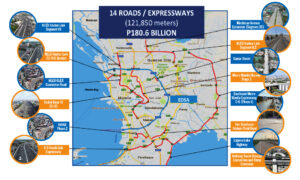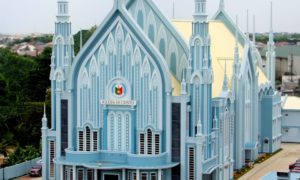The Philippine economy will remain among the strongest across the globe in the coming decade partly due to its demographic sweet spot and educated workforce, according to the Economist Intelligence Unit (EIU).
In a Dec. 19 report, Simon Baptist, EIU global chief economist and managing director for Asia, said in the next decade “the world will have to get used to a slowing China.”
“I expect that growth will be roughly half as fast in the 2020s as it was in the 2010s,” Baptist said in his report titled “The Next Decade.”
Baptist predicted that in the 2020s the fastest growing economies would be in Africa, except for Nigeria, and South and Southeast Asia “with Bangladesh, Kenya and the Philippines all looking at a strong decade.”
Responding to the Inquirer’s query, Baptist said on a social media post that the following augured well for the Philippines’ sustained strong economic growth: urbanization reducing natural-disaster exposure; political stability; English skills; trade openness and population growth.
In the report, Baptist said that in the 2020s, ageing populations will be a global concern.
“On the one hand, this will mean near-zero growth for the economies whose populations are ageing and declining the fastest, like Japan, Italy and Portugal,” his report said.
“But it will increasingly cause difficulties—such as strengthening currencies and aged-care needs—in emerging markets like Chile, Russia and Thailand,” Baptist said.
In contrast, the Philippines has a relatively young population.
Last week, Finance Secretary Carlos G. Dominguez III pointed out that “the Philippines is poised to reach what has been coined as the ‘demographic sweet spot.’”
“As the populations of some of the more mature economies in Asia begin to age, we are looking forward to the entry of millions of young Filipinos into the workforce,” said Dominguez.
“We must invest in them and ensure that they are globally competitive,” Dominguez added.
Baptist, however, said two developments pose risks to robust Philippine growth: automation in the business process outsourcing (BPO) sector and climate change.
In a report last November, the World Bank warned that while “technology has given the country a thriving BPO sector… technology may also take it away, as some tasks become increasingly automated.”
The BPO industry is the country’s biggest dollar earner after cash remittances from Filipinos living and working overseas, but the so-called fourth industrial revolution may wipe out jobs human beings perform.
“Advances in robot technology and artificial intelligence have stoked global fears that many jobs may disappear, and two studies claim that half of jobs in the Philippines are at high risk for automation,” said the World Bank report, “Systemic Country Diagnosis of the Philippines: Realizing the Filipino Dream for 2040.”
“However, the decline of ‘middle-skill’ jobs seen in the developed world is not happening in the Philippines, and the country’s low wage level will slow the rate at which technology substitutes for labor,” the WB report added, though.
“Policies to boost the country’s digital infrastructure and worker skills can make technology more job enabling than job replacing,” WB added.
It said “global heating threatens to devastate the economy over the long term in the absence of efforts to adapt.”
“The Philippines’ very high exposure to natural hazards poses a principal threat to economic growth and inclusion,” it added.
“Natural disasters generate large costs for the economy, which are borne disproportionately by the poor and vulnerable,” WB said.
read more inquirer
Comments






























